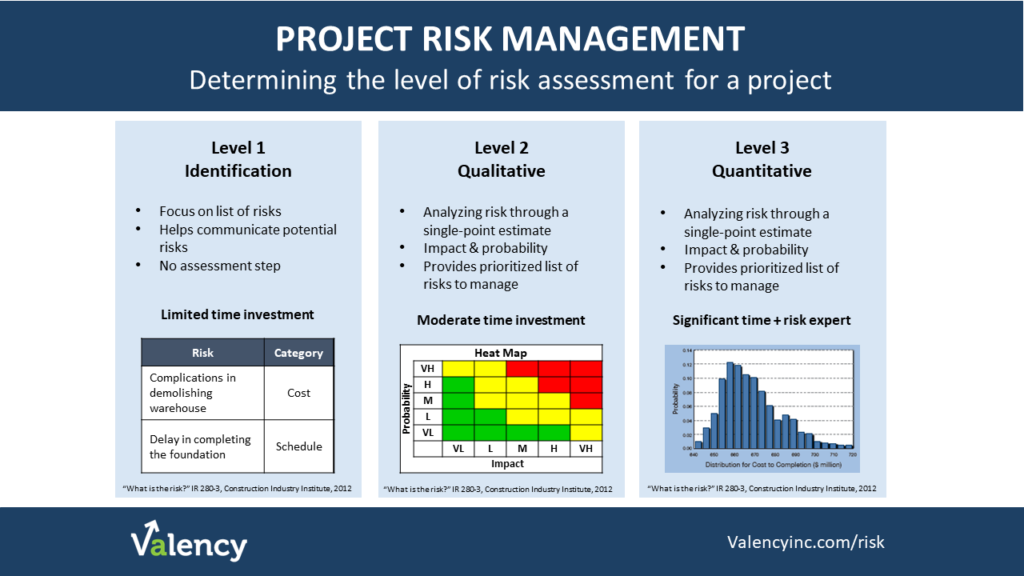Determining the level of project risk assessment requires an understanding of the project complexity as well as the characteristics of each level. Applying the appropriate risk assessment ensures you balance the level of effort with the level of detail required for the project.
The Construction Industry Institute (CII)’s risk management best practice provides guidance on how to select the level of risk assessment for your project.
At a glance, there are three levels of project risk assessments:
- Level 1: Identification of risks
- Level 2: Qualitative or deterministic risk assessment
- Level 3: Quantitative or probablistic risk assessment
Level 1: Identification of Risks
This type of assessment involves only identification of risks, and does not require an assessment step. As an example, if you have a $500,000 project that involves procurement and replacement of one major piece of equipment, you may only have a short list of identified risks that are easily addressed without further assessment.
Level 2: Qualitative Risk Assessment
Qualitative or deterministic risk assessment considers the impact and probability of each risk, and prioritizing your list of risks. Qualitative risk assessment takes more time, but even in a $5-million-dollar project, you can easily have 15-20 identified risks. Taking the time to consider probability and impact will allow you to prioritize your efforts in developing risk responses. This level of risk assessment the focus of Valency’s training course: Project Risk Management Principles & Practices.
Level 3: Quantitative Risk Assessment
Quantitative or probabilistic risk analysis is used in larger capital projects. It involves additional analysis through probability distribution, and provides a cost and schedule estimate at a desired level of certainty. Level 3 requires significantly more time than a qualitative risk assessment, and is often conducted by a risk expert trained in probabilistic risk analysis techniques.
For contractors, quantitative or probabilistic risk analysis often becomes a necessity to determine the appropriate contingency amount on large bids. You may lose bids if they are too high or lose money when they are too low. A risk expert can be a key resource in this process.
Our team of experts can help you with with Level 2 and Level 3 risk assessments. Feel free to reach out and schedule a time to discuss this further.
Training Course: Project Risk Management Principles & Practices
This course is designed specifically for project leaders in the construction industry who are looking to effectively implement best practices in project risk management from the Construction Industry Institute.
You will learn how to apply practical and easy-to-use strategies for:
✔ Risk identification
✔ Qualitative risk assessment
✔ Developing risk responses, and
✔ Monitoring risk throughout the project lifecycle

